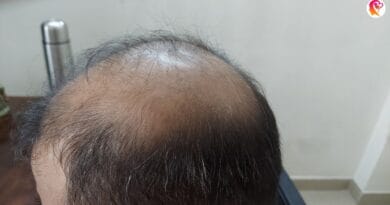Why Are Fitness Enthusiasts and Young Adults Getting Heart Attacks? The Surprising Truth You Need to Know
Introduction
In today’s fast-paced world, fitness enthusiasts and young adults often see themselves as invincible. After all, if you’re hitting the gym regularly, eating healthy, and following the latest fitness trends, you’re probably on the right track to long-term health, right? But what if I told you that all those intense workouts and fitness habits could be silently putting your heart at risk?
Recent reports and research have shown an alarming rise in heart attacks among young adults—especially those who are active in the fitness world. The idea of heart attacks in young, fit individuals might sound surprising, but it’s a growing concern that needs to be addressed. In this blog, we’ll explore the surprising reasons why this is happening and what you can do to protect your heart while staying fit.
Overtraining – When More Is Not Always Better
We often associate more exercise with better health, but that’s not always the case. While regular exercise is crucial for maintaining a healthy heart, overtraining can be detrimental. Overdoing intense workouts without giving your body enough time to rest can lead to stress on your cardiovascular system.
Many fitness enthusiasts push themselves to the limit, convinced that the harder they work, the better the results. However, excessive physical exertion without proper rest can increase the risk of heart problems, including arrhythmias and heart attacks. Studies have shown that athletes and fitness enthusiasts who overtrain may have an increased risk of heart strain due to prolonged periods of high-intensity exercise.
What You Can Do:
To avoid overtraining, balance your workouts with proper rest and recovery. Make sure to schedule rest days into your routine to allow your body to recover and rebuild stronger. Overtraining syndrome can lead to fatigue, injury, and serious cardiovascular risks, so take time to listen to your body and rest when needed.
The Hidden Dangers of Energy Drinks and Supplements
Meet Katie Donnell, a 28-year-old fitness fanatic who tragically lost her life after consuming multiple energy drinks daily. Her story is a stark reminder of how certain habits can have unforeseen consequences.Now, let’s explore how our fitness routines might unintentionally harm our hearts.
Energy drinks and pre-workout supplements are popular among fitness enthusiasts looking to boost their performance. These products often contain high levels of caffeine, stimulants, and other ingredients designed to give you an energy surge. While they may help improve workout performance temporarily, excessive use of these products can have severe consequences on your heart.
High caffeine intake from energy drinks can lead to increased heart rate, high blood pressure, and, in some cases, arrhythmias or heart attacks. According to health experts, consuming multiple energy drinks a day, especially combined with high-intensity workouts, can put undue stress on your cardiovascular system.
What You Can Do:
Before adding any supplement to your fitness routine, it’s essential to research the ingredients and consult with a healthcare professional. Stick to natural energy boosters like water, herbal teas, and nutrient-rich foods to support your workouts. If you must use supplements, always read labels and understand the ingredients you’re consuming.
Diet, Sleep, and Stress – The Unsung Heroes of Heart Health
It’s easy to get caught up in the latest fitness trends and focus entirely on your workout. But maintaining a heart-healthy lifestyle goes far beyond just exercise. Diet, sleep, and stress management play crucial roles in your overall heart health.
A diet high in processed foods, sugars, and unhealthy fats can lead to clogged arteries, high cholesterol, and an increased risk of heart disease. Likewise, stress is a significant contributor to heart health issues. Chronic stress leads to the release of hormones that raise blood pressure and strain your heart. Getting 7-9 hours of quality sleep is equally important, as inadequate sleep can lead to higher blood pressure and increased risk of heart disease.
What You Can Do:
Focus on eating a balanced diet rich in fruits, vegetables, lean proteins, and whole grains. Monitor your cholesterol levels and make heart-healthy choices daily. Incorporate stress management techniques such as meditation, yoga, or simple breathing exercises into your routine. And, of course, ensure you’re getting enough sleep each night to allow your body to recover and function properly.
Practical Tips to Protect Your Heart While Staying Fit
So, how can you maintain your fitness goals without jeopardizing your heart health? Here are some practical tips that can help you stay healthy, active, and heart-smart:
- Don’t Overdo It:
Balance intense exercise with proper rest and recovery. Avoid the temptation to push yourself too hard, especially when your body is telling you it needs a break. - Watch Your Supplement Intake:
Be cautious with energy drinks and performance-enhancing supplements. Opt for natural alternatives to boost your energy levels and performance. - Eat a Heart-Healthy Diet:
Make heart-healthy eating a priority. Include foods like leafy greens, berries, nuts, and fatty fish to support your cardiovascular system. - Monitor Your Health Regularly:
Regular check-ups and health assessments can help catch potential heart issues early. Keep track of your cholesterol levels, blood pressure, and overall heart health.
Conclusion: Fitness and Heart Health – A Balanced Approach
Fitness is an essential part of living a healthy life, but it’s crucial to understand that heart health goes hand in hand with your fitness journey. Overtraining, poor dietary habits, excessive supplement use, and neglecting stress management can all contribute to heart problems.
By maintaining a balanced approach to your workouts, staying mindful of your heart health, and making informed choices about your diet and lifestyle, you can achieve both fitness goals and long-term heart health.
Remember, your heart is the most important muscle in your body. Treat it with the respect it deserves, and it will serve you well for years to come.
FAQs on Heart Attacks in Young Fitness Enthusiasts
1. Can intense workouts cause heart attacks in young adults?
Yes, intense workouts, especially when done excessively without proper rest, can put significant strain on the heart. Overtraining syndrome, where individuals push their bodies too hard, may lead to arrhythmias or other heart-related issues. It’s essential to balance exercise with adequate recovery and avoid over-exertion.
2. How can energy drinks affect heart health?
Energy drinks, especially those containing high levels of caffeine, can cause an increase in heart rate and blood pressure. Regular consumption of these drinks combined with intense exercise can increase the risk of arrhythmias, heart attacks, and other cardiovascular issues. It’s important to limit or avoid energy drinks and opt for healthier alternatives like water or herbal teas to stay hydrated.
3. What are the common signs of a heart attack in young adults?
Common signs of a heart attack include chest pain or discomfort, shortness of breath, dizziness, lightheadedness, nausea, and pain radiating to the arms, jaw, or back. Young adults should pay attention to these warning signs, especially if they experience them during or after intense physical activity. If you feel any of these symptoms, seek immediate medical attention.
4. Is it safe to work out every day?
While regular exercise is crucial for maintaining heart health, working out every day without rest can lead to overtraining. It’s important to listen to your body and allow at least one or two rest days per week for recovery. Overtraining can lead to fatigue, injury, and heart issues, so make sure to balance high-intensity workouts with adequate rest and recovery.
5. How can I protect my heart while staying fit?
To protect your heart, follow these tips:
- Avoid overtraining and ensure you have rest days in your routine.
- Be cautious with supplements, especially energy drinks, and choose natural alternatives.
- Maintain a balanced, heart-healthy diet with plenty of fruits, vegetables, and whole grains.
- Manage stress through activities like yoga, meditation, or deep breathing exercises.
- Get regular check-ups to monitor your heart health, blood pressure, and cholesterol levels.
6. Can supplements like pre-workouts and protein shakes cause heart problems?
While most supplements are safe when used correctly, excessive consumption of pre-workouts or protein shakes that contain high amounts of stimulants or caffeine can elevate blood pressure and heart rate. Long-term or excessive use may lead to cardiovascular issues, so it’s essential to use supplements in moderation and consult with a healthcare professional if you have any concerns.
7. Are there any specific heart conditions I should be aware of as a young adult fitness enthusiast?
Some heart conditions, like hypertrophic cardiomyopathy (an abnormal thickening of the heart muscle) or arrhythmias (irregular heartbeats), may go undiagnosed in young, healthy individuals. These conditions can increase the risk of heart attacks or sudden cardiac arrest during physical exertion. It’s important to get regular health check-ups, especially if you have a family history of heart disease, to ensure your heart is in good condition.
8. How often should I get my heart health checked?
It’s recommended that young adults get their heart health checked at least once a year or whenever they notice unusual symptoms like chest pain, dizziness, or shortness of breath. Regular check-ups are important to monitor cholesterol levels, blood pressure, and overall heart health. If you are an active fitness enthusiast, consider discussing your workout routine with a doctor to ensure it’s safe for your heart.
Common concerns regarding heart health, especially in young adults who are fitness enthusiasts. They offer practical advice and insights on how to stay safe while pursuing fitness goals.
This blog is designed to educate readers on the rising issue of heart attacks among young fitness enthusiasts. It offers practical tips to protect heart health while staying fit, emphasizing balance, proper nutrition, and awareness of the risks associated with overtraining and supplements.




